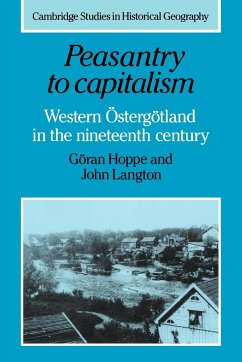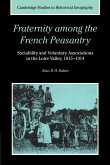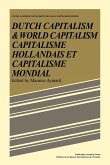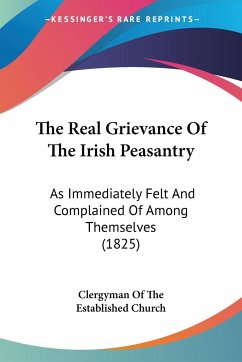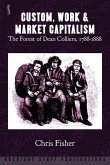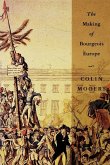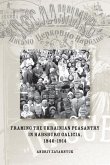This is a theoretical and empirical study of the transition from peasantry to capitalism in Sweden.
How do peasants, producing mainly for themselves, become capitalist farmers, producing largely for sale? What happens to farm sizes, farming practices, and the relationships between cultivators and others in the process of this transition? How far does it vary from region to region? Is it inherent in the peasantry, or must it be instigated by landlord, townsfolk or the state? These are some of the questions addressed by Göran Hoppe and John Langton in this study of rural change in Sweden. Eschewing both traditional narrow empiricism, and the recent trend to over-employ modern social theory, the authors have carefully combined theories about the transition from peasantry to capitalism with meticulous analysis of the abundant Swedish records. In doing so, they reveal the wide geographical variety and rich socioeconomic complexity of the changes which occurred in the process of modernization in the nineteenth century.
Review quote:
"This book is an extraordinarily detailed study of certain aspects of economic change in a modest-sized district of south central Sweden. The extent of the detail no doubt increases its value to scholars working on relevant aspects of 19th-century Swedish economic history....well-organized and well-written."
Journal of Regional Science
"Utilizing segments of this rich data, G#246;ren Hoppe and John Langton's study offers a detailed account of the transition from a peasant to a capitalist economy in the Western #214;sterg#246;tland region in central Sweden. ...Exceptionally researched and scrupulously documented, this is an impressive piece of scholarship."
Agricultural History
"...a powerful analysis of an important stage in social history, and a demonstration of the strengths and weaknesses of detailed theoretical studies of changing social structures....a valuable addition to the growing collection of literature in historical geography."
Choice
"[This work] offers insightful views of land tenure practices and capital development. [It is] also particularly valuable to the non-specialist for the information they provide regarding agricultural and industrial conditions and practices throughout Sweden during the early modern period."
American Historical Review
"...[an] ambitious and thoroughly researched book..."
Journal of Interdisciplinary History
Table of contents:
List of illustrations; List of tables; Preface; 1. Introduction: peasants and economic development; 2. Conceptualizing regional change; 3. Agrarian land ownership and farm holdings; 4. Agrarian livelihood positions, projects and production structures; 5. Industrial and urban livelihoods; 6. Investment and money in agriculture; 7. Flows of labour; 8. Conclusion: peasants and others in the development of capitalist economy; Notes; Bibliography; Index.
How do peasants, producing mainly for themselves, become capitalist farmers, producing largely for sale? What happens to farm sizes, farming practices, and the relationships between cultivators and others in the process of this transition? How far does it vary from region to region? Is it inherent in the peasantry, or must it be instigated by landlord, townsfolk or the state? These are some of the questions addressed by Göran Hoppe and John Langton in this study of rural change in Sweden. Eschewing both traditional narrow empiricism, and the recent trend to over-employ modern social theory, the authors have carefully combined theories about the transition from peasantry to capitalism with meticulous analysis of the abundant Swedish records. In doing so, they reveal the wide geographical variety and rich socioeconomic complexity of the changes which occurred in the process of modernization in the nineteenth century.
Review quote:
"This book is an extraordinarily detailed study of certain aspects of economic change in a modest-sized district of south central Sweden. The extent of the detail no doubt increases its value to scholars working on relevant aspects of 19th-century Swedish economic history....well-organized and well-written."
Journal of Regional Science
"Utilizing segments of this rich data, G#246;ren Hoppe and John Langton's study offers a detailed account of the transition from a peasant to a capitalist economy in the Western #214;sterg#246;tland region in central Sweden. ...Exceptionally researched and scrupulously documented, this is an impressive piece of scholarship."
Agricultural History
"...a powerful analysis of an important stage in social history, and a demonstration of the strengths and weaknesses of detailed theoretical studies of changing social structures....a valuable addition to the growing collection of literature in historical geography."
Choice
"[This work] offers insightful views of land tenure practices and capital development. [It is] also particularly valuable to the non-specialist for the information they provide regarding agricultural and industrial conditions and practices throughout Sweden during the early modern period."
American Historical Review
"...[an] ambitious and thoroughly researched book..."
Journal of Interdisciplinary History
Table of contents:
List of illustrations; List of tables; Preface; 1. Introduction: peasants and economic development; 2. Conceptualizing regional change; 3. Agrarian land ownership and farm holdings; 4. Agrarian livelihood positions, projects and production structures; 5. Industrial and urban livelihoods; 6. Investment and money in agriculture; 7. Flows of labour; 8. Conclusion: peasants and others in the development of capitalist economy; Notes; Bibliography; Index.

